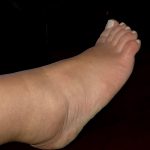Going to the doctor can be a challenging experience for any number of reasons–the tests, the physical exam, the news, the diagnosis, the bill–but you should at least be able to understand what your doctor is saying to you. Yet, medical jargon seems to be a necessary evil that patients and caregivers deal with on a regular basis.
If you think about it, you know that college students, before they go to medical school, are really just like everyone else. They don’t know the jargon and specialized language. But medical school is like going to live in France or Spain for four years – full immersion. Then they spend significant amounts of time around other physicians, speaking their language. In a way, they lose their first language.
So they seem to need articles like this one to get back in touch with their first language, “Get to know patient-speak.” Here are two gems from that article:
“Our patients don’t always urinate. They “make water.” Or they “urine”’ (can it become a verb?) “Urine stones” are kidney stones. We may call foamy urine a sign of albuminuria but to some patients, it is” beer urine.”[1]
or
“When a patient says, “I feel poor” it is not an economic statement. Generally, feeling poor refers to being run down and losing weight. A person who is cachectic is ‘poor.'”[1]
Does anyone say, “albuminuria” in common English? Of course not. “Beer urine” is far more descriptive of the what a person actually sees.
When physicians use words like cachectic, their audience is at a loss. But we can take along crib sheets, or our handy  smartphone set on a website with definitions of words commonly used by physicians. One website created by the Medical Library Association called “What did my doctor say?” is useful. For example, click on “-itis” and you learn that,
smartphone set on a website with definitions of words commonly used by physicians. One website created by the Medical Library Association called “What did my doctor say?” is useful. For example, click on “-itis” and you learn that,
“This is part of a word. It means swelling. Swelling can be caused by a wound, break, or infection in your body. Tonsillitis means swelling of the tonsils. Signs of swelling are redness, pain, or heat.” [2]
Or you can find out that a “CZ” is
“a sac or pouch that forms inside your body. The pouch fills up with fluid. The fluid gets stuck inside the pouch.”
the letters NPO stand for “nil peros, nothing by mouth,” and Q.I.D.
“means “four times each day.” You need to take your medicine four times each day or every six hours.”[2]
Do you have resources like this to help you translate “medicalese”? Please share them in the comments section below.
References
[1] https://www.healio.com/nephrology/practice-management/news/online/
[2] https://www.mlanet.org/page/what-did-my-doctor-say






Will you please translate my Fiboscan results “The reading was adequate. FS = 5.9. This reading corresponds to a 97% chance of stage 0-2 fibrosis, a 3% chance of stage 3-4 fibrosis (advanced fibrosis) and a <1% chance of stage 4 fibrosis (cirrhosis).
The CAP is 297 and corresponds to steatosis grade of S3."